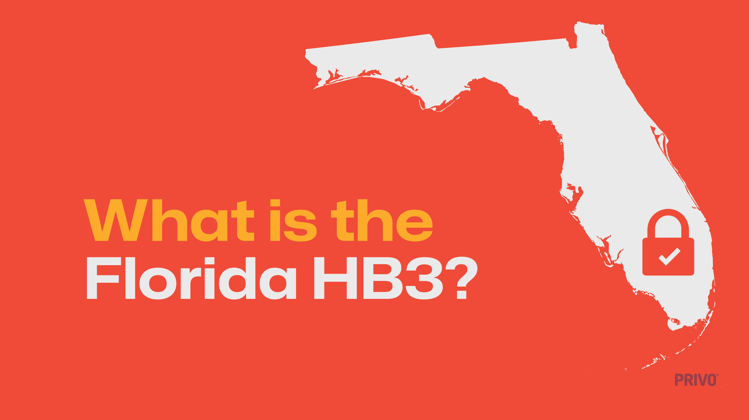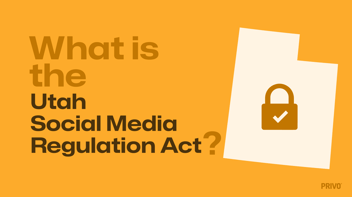
What is Florida’s HB 3 Act: Online Protection for Minors?
Florida is the latest state to forge ahead with enforcing greater protection for teens online. On March 25, 2024, Florida Governor Ron DeSantis signed HB 3, an act to protect minors and to uphold parental rights. The act, prohibits children under the age of 14 from becoming social media account holders, requires parental consent for 14- and 15-year old’s, and age verification for online access to materials harmful to minors.
Similar laws in Utah, Arkansas and Ohio have passed and hit roadblocks, all being challenged in court. Florida may face the same, if the act is contested on constitutional rights and limiting its citizens’ free speech rights. Governor DeSantis' raised concerns about constitutionality, so lawmakers have removed a provision from the legislation that would have mandated social media companies to implement strict age verification, potentially forcing all Floridians to show ID online to prove their age. They believe they can defend HB 3 in the courts.
According to the Census Bureau's latest estimates, as of July 1, 2023, approximately 4,363,870 (19.3%) of Florida's population is under 18 years old. Companies cannot avoid compliance with the act to protect minors online and will need to adopt solutions for age verification and parental consent. Here is the breakdown of this legislation.
Specifically, this Act:
- Prevents a minor who is younger than 14 years of age from becoming a social media account holder.
- Empowers parents to decide whether 14- and 15-year-olds can have a social media account, requiring parental consent.
- Allows the confirmed parent or guardian of an account holder who is 14 or 15 years of age to request that the minor's account be terminated.
- Protects the ability of Floridians to remain anonymous online.
- Requires material harmful to minors such as pornographic or sexually explicit websites to use anonymous age verification or standard age verification to verify that the age of a person attempting to access material is 18 years of age or older to prevent minors from accessing sites that are inappropriate for them.
Who does the HB 3 Act apply to?
The act applies to social media platforms and material harmful to minors.
As defined in the HB 3, “social media platform" means an online forum, website, or application that satisfies each of the following criteria:
- Allows users to upload content or view the content or activity of other users;
- Ten percent or more of the daily active users who are younger than 16 years of age spend on average 2 hours per day or longer on the online forum, website, or application on the days when using the online forum, website, or application during the previous 12 months or, if the online forum, website, or application did not exist during the previous 12 months, during the previous month;
- Employs algorithms that analyze user data or information on users to select content for users; and
- Has any of the following addictive features:
- Infinite scrolling, which means either; (I) Continuously loading content, or content that loads as the user scrolls down the page without the need to open a separate page; or (II) Seamless content, or the use of pages with no visible or apparent end or page breaks.
- Push notifications or alerts sent by the online forum, website, or application to inform a user about specific activities or events related to the user's account.
- Displays personal interactive metrics that indicate the number of times other users have clicked a button to indicate their reaction to content or have shared or reposted the content.
- Auto-play video or video that begins to play without the user first clicking on the video or on a play button for that video.
- Live-streaming or a function that allows a user or advertiser to broadcast live video content in real-time.
- Infinite scrolling, which means either; (I) Continuously loading content, or content that loads as the user scrolls down the page without the need to open a separate page; or (II) Seamless content, or the use of pages with no visible or apparent end or page breaks.
The term social media platform does not include an online service, website, or application where the exclusive function is e-mail or direct messaging consisting of text, photographs, pictures, images, or videos shared only between the sender and the recipients, without displaying or posting publicly or to other users not specifically identified as the recipients by the sender.
"Material harmful to minors" as defined in the HB 3, is any material that:
- The average person applying contemporary community standards would find, taken as a whole, appeals to the prurient interest;
- Depicts or describes, in a patently offensive way, sexual conduct as specifically defined in s. 847.001(19); and
- When taken as a whole, lacks serious literary, artistic, political, or scientific value for minors.
Effective Date:
Originally January 1, 2025, but now delayed until a federal judge makes a decision on whether the law should be blocked while the case against it moves through the courts.That means enforcement won’t begin until at least late February.
Enforcement:
The Department of Legal Affairs is authorized to bring actions under the Florida Deceptive and Unfair Trade Practices Act for knowing or reckless violations. The department may collect a civil penalty from social media platforms or a commercial entity that allows a minor to access harmful material of up to $50,000 per violation and reasonable attorney fees, court costs and punitive damages. Claimants may be awarded up to $10,000 in damages.
Need help navigating and complying Florida’s HB 3?
Contact PRIVO for expert guidance and to see a demo of our easy to implement compliant smart age gate, age verification and parental consent services to help your company comply with HB 3.
For more information about HB 3:
>> View the bill: HB 3: Online Protection for Minors


 Blog
Blog






 Facebook
Facebook Linkedin
Linkedin Blog
Blog


 Twitter
Twitter